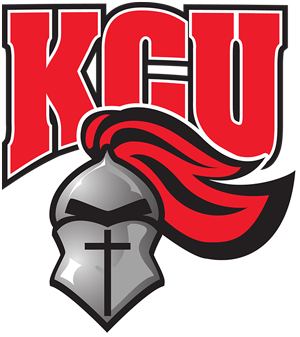The School of Humanities and Sciences is thrilled to announce that Dr. Gerald Dyson, Associate Professor of History and Director of the History/Pre-Law program, has been awarded an In-Year Research Fellowship from the Appalachian College Association for the 2024-2025 academic year. This award comes in conjunction with a one-year sabbatical that Dyson was approved for to complete his research project.
Dr. Dyson’s sabbatical research concerns English medieval manuscripts, or more specifically, fragments of manuscripts. “For every manuscript that has survived a thousand years more or less intact, others didn’t and are preserved only in fragmentary form,” says Dr. Dyson. He believes that looking at manuscript fragments from the early medieval period in England (around 600 to 1100 AD) as a group will help to extrapolate what once existed in contrast to what exists today in a relatively complete form. He went on to say that much of this was familiar territory for him, while other aspects might prove more challenging: “I’ve been working with and studying medieval manuscripts since 2009 and I enjoy it quite a bit. What may be trickier is analyzing what it all means after piecing together a corpus of scores of manuscript fragments, but I’m looking forward to the challenge.” Dr. Dyson’s plan is that the research from this sabbatical will lead to a second book tentatively titled The Manuscript Fragments of Early Medieval England.
As an ACA member school, KCU faculty can take advantage of numerous professional development programs—such as leading webinars, attending in-person conferences, guiding student research, and participating in fellowship programs like the one Dr. Dyson was awarded. “The ACA provides a number of fantastic resources that can help faculty members grow as educators and mentors, some which I am honored to have participated in,” says Dr. Rob O’Lynn, Dean of Distance Education and KCU’s liaison to the ACA. “This fellowship is a testament both to the investment the ACA makes in Appalachian-based faculty as well as the excellent quality of Dr. Dyson’s scholarship.” According to the ACA website, the faculty fellowship program “furnishes substantial support toward the professional development of faculty members at its member institutions and is open to all academic areas of study” and “has distributed nearly 600 awards totaling nearly $9.8 million” throughout the program’s history.
The School of Humanities and Sciences houses the History program which Dr. Dyson coordinates. Dr William Stevens, dean of the school, encouraged the sabbatical during a meeting in Dr. Dyson’s office. “We were discussing faculty development almost exactly a year ago, and Gerald brought up the idea of travelling abroad for a research project.” Dr. Stevens was immediately supportive. On sabbaticals, Dr. Stevens said, “Opportunities for faculty to get out of the classroom and pursue research interests create numerous benefits for our institution. Such opportunities tend to reinvigorate faculty when they return to the classroom. Additionally, sharing our faculty with the global community spreads awareness of the excellent work we do here at KCU. Finally, the publications and presentations of the research will serve to inspire faculty and students alike to pursue their own academic interests.” On Dr. Dyson’s sabbatical, Dr. Stevens says, “Dr. Dyson is an excellent scholar and educator. He will be gone for one academic year and travel between Kentucky, Singapore, and England. We will miss him around campus but are excited for his return.”
The Appalachian College Association is a non-profit consortium of 33 private four-year liberal arts institutions located in the Appalachian Mountains. As a consortium of independent colleges and universities, the Appalachian College Association provides resources for collaborative programs that can help KCU accomplish its mission by enhancing our students’ educational experiences and ensuring optimal use of institutional resources



